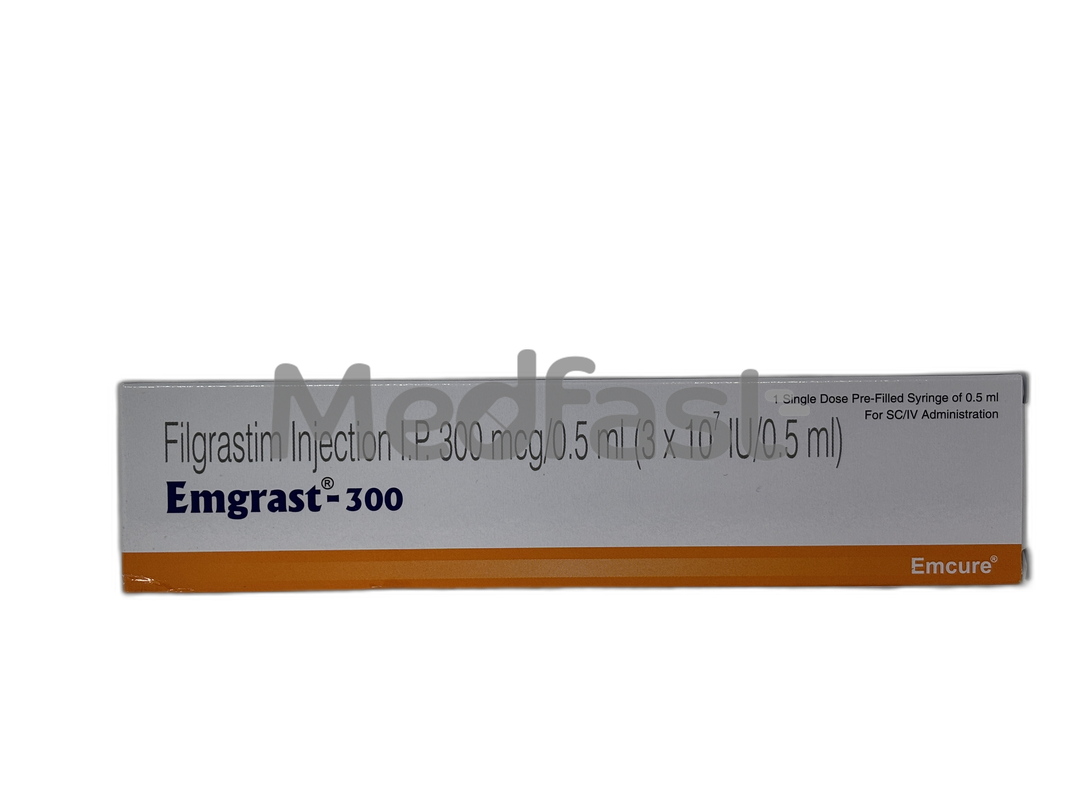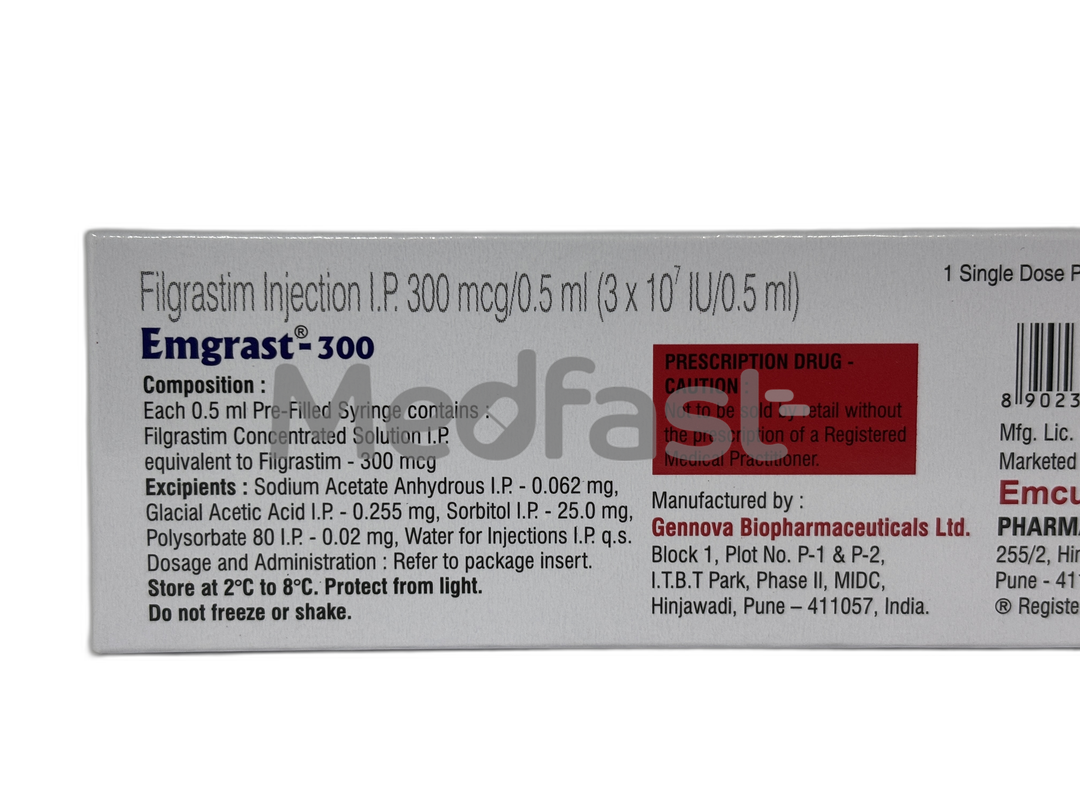- To prevent infections after chemotherapy due to decreased white blood cells (neutropenia)
EMGRAST 300
| MRP | : |
|
| Price | : | ₹500.00 |
| You Save | : | ₹717.96 (58.95%) |
1 prefilled syringe(s) of 0.5ml
Emgrast 300mcg injection, containing the active constituent filgrastim, is a white blood cell growth factor, specifically a granulocyte-colony stimulating factor. Approved by the FDA, its primary role is to decrease the risk and duration of febrile neutropenia—the occurrence of fever or infection alongside a low white blood cell (WBC) count—in individuals with non-myeloid cancer who are undergoing chemotherapy. Additionally, it is employed to increase WBC counts and reduce the duration of fever in patients with acute myeloid leukemia.
Beyond these applications, Emgrast 300mcg injection is also utilized in patients undergoing bone marrow transplants and those suffering from severe chronic neutropenia, a persistent low number of neutrophils in the blood. It serves to prepare the blood for leukapheresis, a procedure that involves removing specific blood cells. Furthermore, it is indicated to enhance the survival rate in individuals exposed to harmful levels of radiation, which can severely damage the bone marrow. Other uses include its application in patients with advanced HIV infection, where it helps to reduce the risk of infections.
Belonging to the class of medications known as colony-stimulating factors, Emgrast 300mcg injection works by stimulating the body to produce more white blood cells. These cells are critical for the body’s ability to fight infection. Given that chemotherapy can significantly decrease WBC counts, leaving the body vulnerable to bacterial infections, Emgrast 300mcg injection helps to mitigate this risk. Patients should inform their physician if they have or have had liver disease, kidney problems, sickle cell anemia, or bone disease. Common side effects associated with this injection include fever, pain, rash, cough, shortness of breath, and nosebleed.



